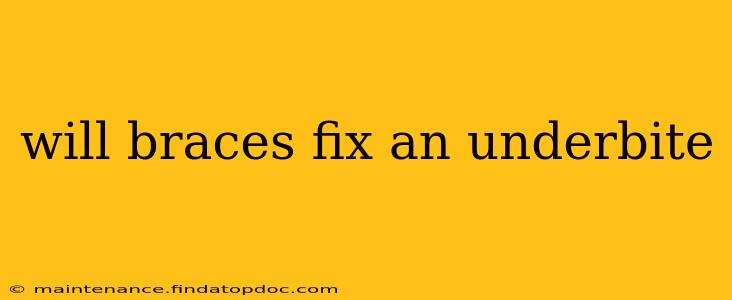An underbite, also known as mandibular prognathism, is a type of malocclusion where the lower jaw protrudes beyond the upper jaw. Many people wonder if braces can correct this condition, and the answer is often yes, but it depends on the severity of the underbite and other individual factors. This comprehensive guide explores the effectiveness of braces in treating underbites and addresses common questions surrounding this orthodontic issue.
What Causes an Underbite?
Understanding the root cause of an underbite is crucial in determining the best treatment plan. Several factors can contribute to an underbite, including:
- Genetics: Family history of underbites significantly increases the likelihood of developing one.
- Thumb sucking: Prolonged thumb sucking, especially during childhood, can put pressure on the jaw, leading to misalignment.
- Tongue thrusting: Habitual pushing of the tongue against the teeth can also contribute to an underbite.
- Early loss of baby teeth: Premature loss of baby teeth can affect the proper development and alignment of permanent teeth.
- Jaw size discrepancies: Sometimes, the lower jaw simply grows larger than the upper jaw, resulting in an underbite.
How Do Braces Correct an Underbite?
Braces work by applying gentle, consistent pressure to gradually reposition the teeth and jaws. In the case of an underbite, braces can:
- Move the lower jaw backward: This is often achieved through specialized appliances in conjunction with braces.
- Move the upper jaw forward: Depending on the severity and the individual’s anatomy, braces may be used to slightly advance the upper jaw.
- Adjust the bite: Braces carefully align the upper and lower teeth to create a proper bite.
The treatment process typically involves regular adjustments and check-ups with the orthodontist to monitor progress and make necessary modifications. The duration of treatment can vary considerably depending on the complexity of the underbite.
Can Braces Fix a Severe Underbite?
While braces are often effective for mild to moderate underbites, severe cases may require additional interventions beyond traditional braces. These might include:
- Surgical intervention: In severe cases, jaw surgery (orthognathic surgery) may be necessary to reposition the jawbones. This is usually done in conjunction with braces.
- Headgear: Headgear is sometimes used to help control the growth of the jaw and create more space for the teeth.
- Expander appliances: These appliances are used to widen the upper jaw, creating more space for the teeth.
What are the Alternatives to Braces for Underbite Correction?
While braces are a common and often successful treatment for underbites, other options may be considered depending on the individual’s age and the severity of the condition:
- Invisalign: For some mild underbites, Invisalign clear aligners might be an option. However, it's less likely to be effective for severe cases that require jaw repositioning.
- Palatal expanders: These appliances are used to widen the upper jaw and improve the relationship between the upper and lower teeth.
How Long Does it Take to Fix an Underbite with Braces?
The treatment time for an underbite with braces varies greatly depending on the severity of the malocclusion and individual response to treatment. It can range from 12 to 36 months or even longer in complex cases. Regular visits to the orthodontist are essential to monitor progress and make necessary adjustments.
What are the Costs Associated with Underbite Correction with Braces?
The cost of underbite correction with braces can vary significantly depending on several factors, including the complexity of the case, the length of treatment, and the orthodontist's fees. It’s always best to consult with your orthodontist directly to get a personalized cost estimate.
Can Adults Get Braces to Fix an Underbite?
Absolutely! Adults can definitely get braces to fix an underbite. While children and adolescents might benefit from the ongoing growth and development of their jaws, adults can still achieve successful underbite correction with braces. The treatment process might be slightly different for adults.
Will My Underbite Affect My Speech?
While an underbite can sometimes affect speech, it’s not always the case. However, successful correction of the underbite with braces often improves speech clarity.
Does an Underbite Cause TMJ Problems?
An underbite can sometimes contribute to temporomandibular joint (TMJ) disorders, but it's not always a direct cause. The misalignment of the jaw can put stress on the TMJ, potentially leading to pain and discomfort. Successfully correcting the underbite can often alleviate TMJ symptoms.
This information is for general knowledge and does not constitute medical advice. It's crucial to consult with a qualified orthodontist or dentist for a proper diagnosis and personalized treatment plan for your specific underbite. They can assess your individual situation and determine the most effective approach to achieve optimal results.
